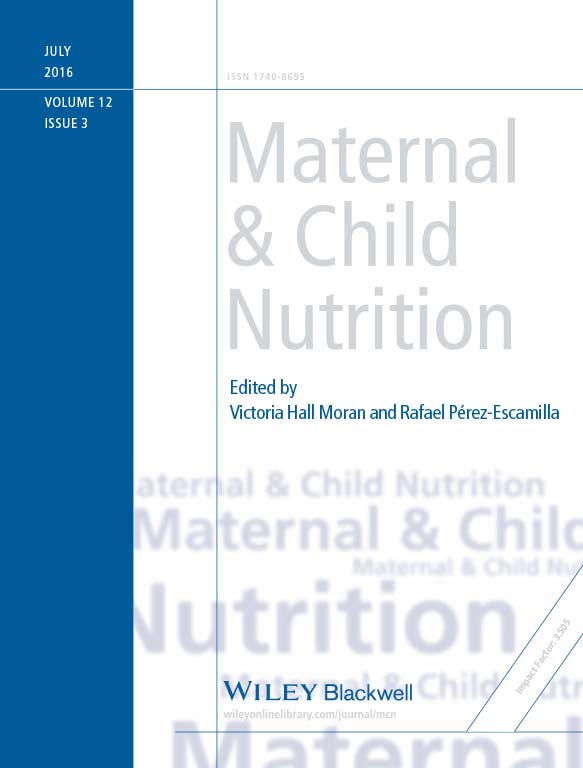This article was published in the Maternal & Child Nutrition Supplement: Availability, Promotion and Consumption of Commercial Infant Foods.
Abstract: This study assessed the promotion of commercially produced foods and consumption of these products by children less than 24 months of age in Dakar Department, Senegal. Interviews with 293 mothers of children attending child health clinics assessed maternal exposure to promotion and maternal recall of foods consumed by the child on the preceding day. Promotion of breastmilk substitutes and commercially produced complementary foods outside health facilities was common with 41.0% and 37.2% of mothers, respectively, reporting product promotions since the birth of their youngest child. Promotion of commercially produced snack food products was more prevalent, observed by 93.5% of mothers. While all mothers reported having breastfed their child, only 20.8% of mothers breastfed their newborn within the first hour after delivery, and 44.7% fed pre-lacteal feeds in the first 3 days after delivery. Of children 6–23 months of age, 20.2% had consumed a breastmilk substitute; 49.1% ate a commercially produced complementary food, and 58.7% ate a commercially produced snack food product on the previous day. There is a need to stop the promotion of breastmilk substitutes, including infant formula, follow-up formula, and growing-up milks. More stringent regulations and enforcement could help to eliminate such promotion to the public through the media and in stores. Promotion of commercial snack foods is concerning, given the high rates of consumption of such foods by children under the age of 2 years. Efforts are needed to determine how best to reduce such promotion and encourage replacement of these products with more nutritious foods.
Authors: Alison B. Feeley, Aminata Ndeye Coly, Ndeye Yaga Sy Gueye, Elhadji Issakha Diop, Alissa M. Pries, Mary Champeny, Elizabeth R. Zehner and Sandra L. Huffman
View Resource
